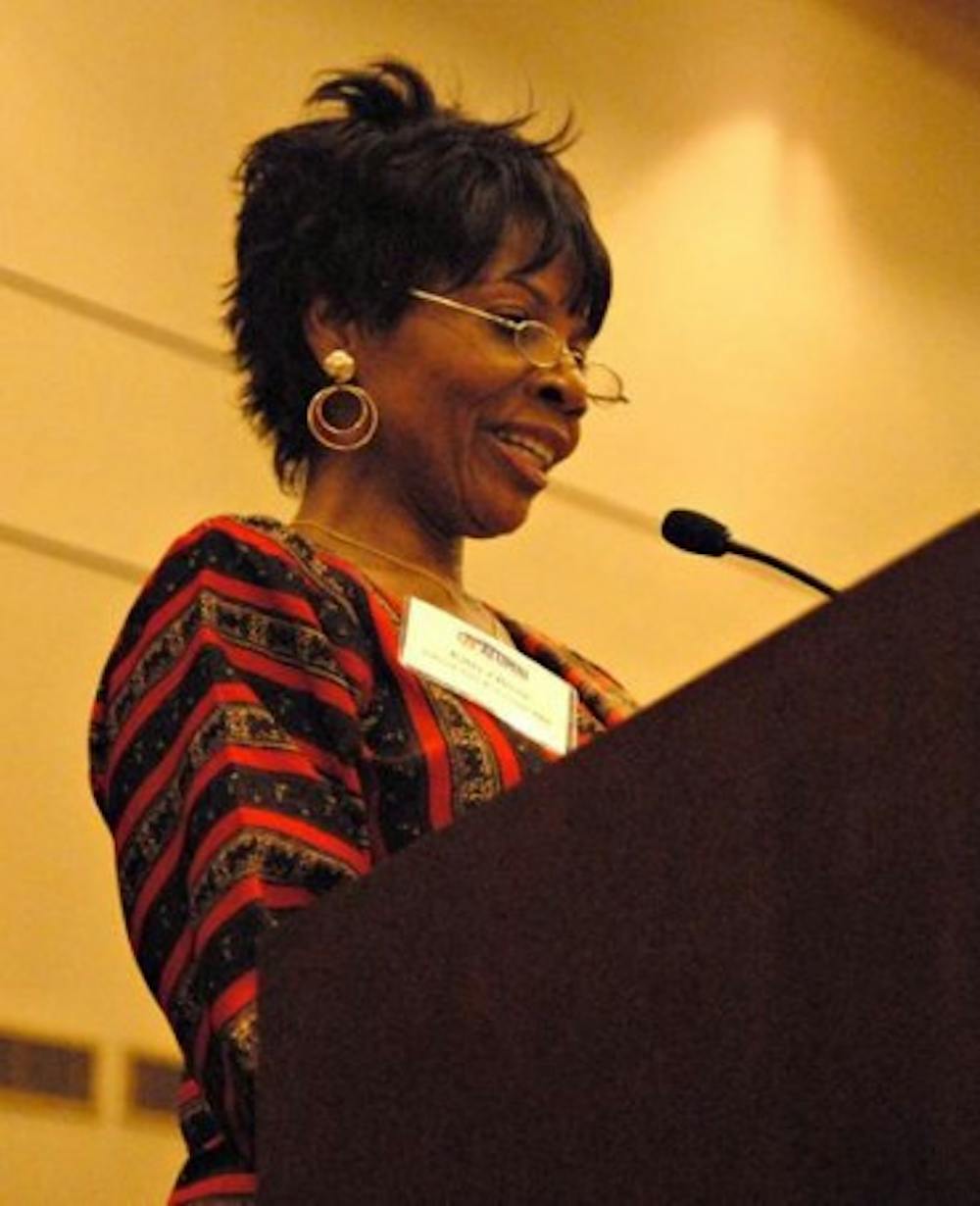Before Michelle Davis watched the football team's rout of Hawaii, the UF alumna sat in the Reitz Union Grand Ballroom and listened to the stories of black men and women who struggled for equal rights at UF 50 years ago.
Davis and more than 150 others attended a champagne brunch Saturday as part of this year's Black Alumni Weekend. The weekend celebrated the 50th anniversary of integration at UF, when George Starke Jr. became the first black student in September 1958 after enrolling in the UF Levin College of Law.
Davis, who graduated from UF in 1988, shared the experience with her 11-year-old daughter, Jasmine.
"It's important to see the strides African-Americans had made here and around the country," she said. "I wanted her to see the school is more than football."
Some of the speakers attended UF during the 1960s and '70s, a time when the first black students struggled with being the minority on a campus shaped by the legacies of white students and administrators.
Linda Y. Jackson, president of the UF Association of Black Alumni, which sponsored the event, said the purpose of the brunch was to highlight what student life was like for those UF students.
"This event will help us get a better record of history," Jackson said. "These stories need to be told."
And that's exactly what happened.
Delphine Jackson, who graduated from UF in 1971 with a degree in education, told the crowd about her part in the 1971 Black Student Union sit-in.
She said in April of that year, the student union held a sit-in at then-UF President Stephen C. O'Connell's office and demanded he admit more black students and faculty. Only 343 black students were enrolled in fall 1970, according to UF's Web site.
Sixty-six students were arrested, and O'Connell refused amnesty to the protesters, a decision that led to the departure of one-third of the black student population and several black faculty members from UF, according to the site.
Jackson wasn't arrested, but it remains a day she will never forget.
She was five months pregnant at the time and said her decision to protest made it possible for her son to attend UF years later.
Other speakers included Don Gaffney, UF's first black quarterback, as well as Warren Jones and Ron Coleman, who were involved in the 1971 protest.
This fall, approximately 4,100 black students were enrolled in UF's undergraduate, graduate and professional programs, according to Steve Orlando, UF spokesman.
This year's enrollment of black students represents a drop of about 70 students from fall 2007. Orlando said one reason for the decline could be attributed to the heavy recruitment being performed by other Florida universities.
Other events from the weekend included a dance, a post-game social and a farewell brunch on Sunday.
Florida Bridgewater-Alford, director of UF community relations, said more events will be celebrated this year in honor of the 50th anniversary of integration, including a gala in February.
"I have goose bumps being here and understanding what these people went through," Bridgewater-Alford said. "There was so much accomplished then, but there is still so much we have to do."
For Marietta LeBlanc, who graduated from UF in 1996, the brunch was an opportunity for her to understand how her parents felt during their time at UF, since both attended the university when black students first started attending.
"I came to get a sense of history and a sense of progress," LeBlanc said.






